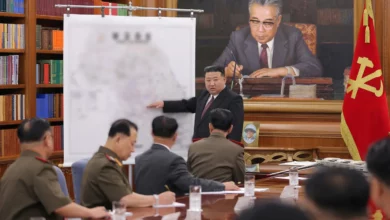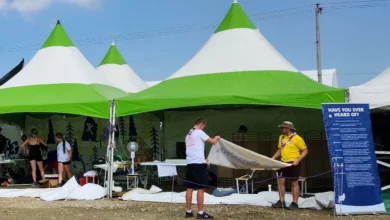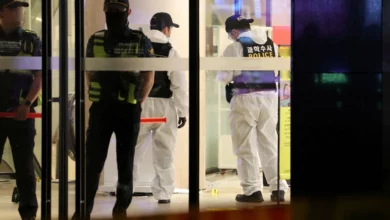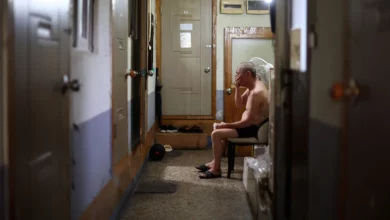
South Korea has spent decades screening refugees from a hostile neighbor but some enemy agents manage to get through, underlining the challenges Western nations face in dealing with a far larger influx of people escaping the war in Syria.
Seoul uses lie detectors, interrogation and a screening process that includes keeping people in solitary confinement to catch North Korean agents among genuine asylum seekers.
Still, between 2003 and 2013, of the 49 North Korean spies apprehended in the South, 21 entered the country posing as refugees, according to the country's justice ministry.
"The question of spies slipping through is always a problem, and we need to make the process more meticulous and advanced," said Shin Kyung-min, the ranking opposition member of the South Korean parliament's intelligence committee.
"But it's not like we can stop taking in North Korean defectors because of that," Shin told Reuters.
There are growing calls in the United States and in Europe to bar tens of thousands of refugees fleeing Syria's civil war following this month's Paris attacks because of concerns that vetting processes are not stringent enough and that extremists planning attacks could slip through.
More than 1,000 North Koreans defect to the South every year and are held for up to 180 days while they are screened. If they clear that, the refugees are transferred to a resettlement complex, which they cannot leave, for another 12 weeks to help them adjust to life in the South.
New North Korean arrivals to the South, who typically enter via a third country, are brought to a facility in Siheung on the southern outskirts of Seoul. There, they are separated for questioning on their backgrounds and lives in the North, spending time in solitary but comfortable rooms.
No exception is made for families or children, who are taken from their parents and face similar questioning, according to a civic group.
"It was like writing my autobiography," said a 59-year-old female defector who spent three months at the interrogation center from 2012 and asked that she not be named because she is not supposed to talk about the process.
"I talked about my whole life in chronological order and got checked," she told Reuters.
"I came here to change my life so there was nothing that I was afraid of."
Lie detectors are used as a basic tool, as many defectors from the isolated and impoverished North are undocumented, a former National Intelligence Service official said.
A typical interrogation starts with the defector's address, and the program has built a database with locations, names and other details to compare with their story, Shin, the lawmaker said.
The National Intelligence Service declined to comment for this article.
The program has succeeded in weeding out about 120 bogus defectors and 14 spies, local media reports last year said, citing intelligence officials. Fake defectors are believed mainly to consist of ethnic Korean citizens of mainland China. The numbers could not be independently verified.
Those found not to be North Korean defectors are deported, while those determined to be spies are prosecuted, according to South Korean authorities.
Submarines and gunfights
Pyongyang is believed to have begun sending spies posing as defectors to the South in the late 1990s when large batches of refugees fled a massive, deadly famine.
Before that, South Korea occasionally caught armed spies who had infiltrated from across the militarized border, or via small submarines in the dark of night. Some confrontations between North Korean agents and South Korean security forces ended in deadly gunfights.
"It is not an easy process because they are disguised as refugees, highly trained, dispatched by counter-South espionage agencies," said Jun Ok-hyun, a former deputy director of South Korea's spy agency who retired in 2009.
"The more defectors come, the stronger the review process should be because it could be easier for North Korea to send spies as fake refugees," he told Reuters.
Once refugees are cleared by intelligence officials, they move to a resettlement center where they learn practical aspects of life in the modern, capitalist South, such as using an ATM and the differences in local usage of a common language that has evolved separately during seven decades of division.
They also get health checks, nutritional support and vocational training.
When defectors leave the resettlement center and move into the general population, police officers are assigned to protect and manage them, according to police officials who declined to elaborate.
Shin, the opposition lawmaker, noted that most North Koreans entering the South are genuine refugees and said the screening program is "quite impressive".
"The challenge for us is to pick out the spies getting increasingly sophisticated in fabricating their stories."




